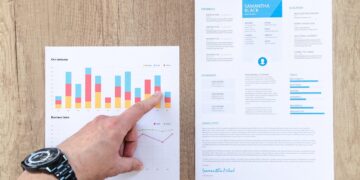Reducing Your Tax Liability Through Effective Year-Round Strategies
Paying taxes is an inescapable aspect of life and business, but that doesn’t mean you can’t take steps to minimize your tax burden legally and strategically. There are numerous ways to reduce tax liability that go beyond last-minute deductions and credits, focusing on year-round planning to optimize your financial outcomes. This article delves into effective strategies for reducing your tax liability, integrating comprehensive planning and timely execution.
Understanding Your Tax Obligations
Before you can begin to reduce your tax liability, it is essential to fully understand your current tax situation. This means knowing your effective tax rate, identifying your main tax deductions and credits, and being aware of the latest changes in tax regulations. Each year, tax laws might change slightly, and staying on top of these changes can provide you with additional opportunities to save.
Consult a Tax Professional
An effective first step in managing your taxes is consulting with a tax professional. Certified Public Accountants (CPAs) or tax advisors not only help you comprehend your current tax status but can also provide personalized advice tailored to your financial situation. Leveraging professional expertise is especially beneficial for navigating complex tax scenarios and maximizing potential savings.
Strategies for Individuals
Individual taxpayers have several opportunities to reduce their tax liability through adjustments in their investments, retirement planning, and eligibility for various deductions and credits.
Invest in Tax-Advantaged Accounts
Maximizing contributions to tax-advantaged accounts such as IRAs, 401(k)s, or HSAs can substantially reduce your taxable income. These accounts typically offer tax-free growth or tax-deferred benefits, making them excellent tools for financial planning and tax reduction.
Harvest Tax Losses
Investment management can also play a key role in managing your taxable income. Selling investments that have incurred losses can offset gains you’ve realized elsewhere in your portfolio, a strategy known as tax-loss harvesting. However, be mindful of the ‘wash-sale’ rule, which prohibits you from claiming a loss on a security if you repurchase a “substantially identical” security within 30 days before or after the sale.
Educational Expenses and Credits
If you or your dependents are currently students, you may be eligible for education-related deductions and credits. The American Opportunity Credit and Lifetime Learning Credit are two significant opportunities that can reduce your tax bill while investing in education.
Strategies for Business Owners
Business owners have additional avenues for tax reductions, encompassing everything from expenses, asset depreciation, and strategic use of retirement plans. Understanding how to leverage business expenditures and credits can significantly decrease annual tax liabilities.
Deductible Business Expenses
Expenses incurred in the course of running a business can significantly reduce your taxable income. Common deductible expenses include costs related to home offices, business travel, and professional development. Proper documentation and knowledge of what constitutes a legitimate business expense according to the IRS criteria are vital.
Section 179 Deduction
One powerful deduction for businesses is the Section 179 deduction, which allows businesses to deduct the full purchase price of qualifying equipment or software purchased during the tax year. This can include office furniture, machines, and computers, significantly lowering the upfront cost of these essential business tools.
Consider Business Entity Structuring
The structure of your business can affect your tax obligations. Entities like S-Corporations or Limited Liability Companies (LLCs) might offer favorable pass-through taxation options. It’s essential to consult with a tax expert to determine the most beneficial structure for your business.
Plan for the Future
Beyond yearly strategies, consider long-term tax planning techniques, such as estate planning and setting up trusts, to ensure financial stability and potential tax benefits for future generations.
Estate Planning and Trusts
Proper estate planning helps you manage your assets now and after your death, potentially saving significant amounts in estate taxes, especially if your estate exceeds the federal exemption levels.
Final Thoughts
Reducing your tax liability effectively requires a combination of understanding your current tax situation, employing year-round strategies, and engaging with tax professionals for tailored advice. By staying proactive and informed, individuals and business owners can significantly reduce their tax obligations, optimize financial performance, and plan for a secure financial future.
Always ensure that your strategies are compliant with IRS rules and regulations, and consider seeking advice from a tax professional to best navigate the complex landscape of tax planning.
With these strategies and considerations in mind, you’re well on your way to minimizing your tax liability and maximizing your financial resources.



























































